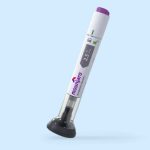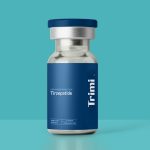Zepbound, a new treatment developed by Eli Lilly, introduces a powerful weight management option by targeting two key hormones—GLP-1 and GIP. With proven benefits in appetite control and blood sugar regulation, Zepbound represents a fresh and promising approach for individuals facing obesity-related challenges.
Introducing Zepbound: Advancing the Weight Loss Journey
In today’s ongoing efforts to tackle obesity and its associated health risks, Zepbound has emerged as a highly effective therapy. Created by Eli Lilly, this medication works differently by combining the actions of two naturally occurring hormones: glucagon-like peptide-1 (GLP-1) and glucose-dependent insulinotropic polypeptide (GIP).
How Zepbound Works
Zepbound is a once-a-week injectable designed to replicate the effects of GLP-1 and GIP. These hormones regulate how hungry you feel, enhance the sensation of fullness after eating, and help manage blood sugar levels.
This dual-action treatment works by:
- Slowing down digestion so you stay full longer
- Curbing appetite, making it easier to reduce calorie intake
- Improving insulin response, which supports blood sugar balance
By leveraging both hormone pathways, Zepbound offers a multi-targeted approach to weight loss.
How to Use Zepbound
Zepbound comes in pre-filled, single-use pens meant for injection just under the skin. Treatment typically starts at 2.5 mg per week, with the dose increasing every four weeks until reaching a maximum of 15 mg, based on your provider’s guidance.
It’s important to follow your prescribed dose schedule and use the proper injection technique as instructed by your healthcare provider.
Zepbound Dosing Schedule
| Time Frame | Dosage |
|---|---|
| Weeks 1–4 | 2.5 mg |
| Weeks 5–8 | 5 mg |
| Weeks 9–12 | 10 mg |
| Weeks 13+ | Up to 15 mg |
This schedule may vary based on your response and provider recommendation.
Clinical Trial Insights
Results from clinical studies have shown Zepbound to be extremely effective in promoting weight loss. One major trial published in the New England Journal of Medicine revealed that patients taking the 15 mg dose lost on average 22.5% of their body weight after 72 weeks.
These outcomes surpassed both the placebo group and many existing weight loss medications, signaling Zepbound as a powerful new option in obesity care.
What Are the Possible Side Effects?
Most users experience mild to moderate side effects, which usually lessen over time as the body adapts to the treatment. The most frequently reported effects include:
- Nausea
- Diarrhea
- Constipation
- Abdominal discomfort
Rare but serious risks may involve:
- Pancreatitis
- Thyroid tumor development (in those with a genetic predisposition)
Always discuss your medical history with your provider before starting Zepbound to understand any personal risks.
A Whole-Health Approach
While Zepbound offers measurable weight loss results, it’s not a standalone solution. It should be used as part of a holistic wellness plan, including:
- A balanced, calorie-conscious diet
- Consistent physical activity
- Mental health and lifestyle support
Zepbound acts as a supportive aid alongside your health efforts, not a substitute for them.
FAQs
Is Zepbound FDA-approved for weight loss?
Yes. Zepbound is FDA-approved for long-term weight management in adults with obesity or those who are overweight and have at least one related condition (e.g., high blood pressure, type 2 diabetes).
How effective is it?
Clinical trials have shown up to 22.5% body weight loss at the highest dose over 72 weeks, which is among the most effective in its category.
What side effects should I expect?
Mild issues like nausea and digestive discomfort are common at first, but typically fade. Talk to your provider if symptoms persist or worsen.
Can I combine Zepbound with other medications?
Zepbound should not be used with other GLP-1-based medications. Combining them is not proven safe or effective.
Is it safe for everyone?
Zepbound should be avoided by those with a personal or family history of medullary thyroid cancer or MEN 2 syndrome. It also requires caution in patients with liver or kidney conditions.
How long can I stay on Zepbound?
Zepbound is intended for long-term use. Your healthcare provider will track your progress and decide how long you should continue based on your individual results.
Final Thoughts
Zepbound is redefining how we think about obesity treatment. By targeting both hunger hormones and glucose metabolism, it creates a well-rounded strategy for real, sustained weight loss. With ongoing guidance from your provider and lifestyle commitment, Zepbound could be a transformative option in your health journey.
Important Notice
This content is intended for educational purposes only and should not replace medical advice. Always speak with a licensed healthcare provider before starting any medication.
TryTrimi connects users with licensed medical professionals who assess each case individually. All prescriptions are issued at the discretion of your provider and filled by certified, independent pharmacies. We do not compound medications or manufacture any drugs ourselves.
For full safety details, visit trytrimi.com/safety-info.
Sources
- Drucker, D. J. (2018). Mechanisms of action and therapeutic application of glucagon-like peptide-1. Cell Metabolism.
- Nauck, M. A., & Meier, J. J. (2018). Incretin hormones: their role in health and disease. Diabetes, Obesity and Metabolism.
- Jastreboff, A. M., et al. (2022). Tirzepatide once weekly for the treatment of obesity. New England Journal of Medicine.
- Marso, S. P., et al. (2016). Liraglutide and cardiovascular outcomes in type 2 diabetes. New England Journal of Medicine.
- Wadden, T. A., et al. (2020). Lifestyle modification approaches for the treatment of obesity in adults. American Psychologist.





